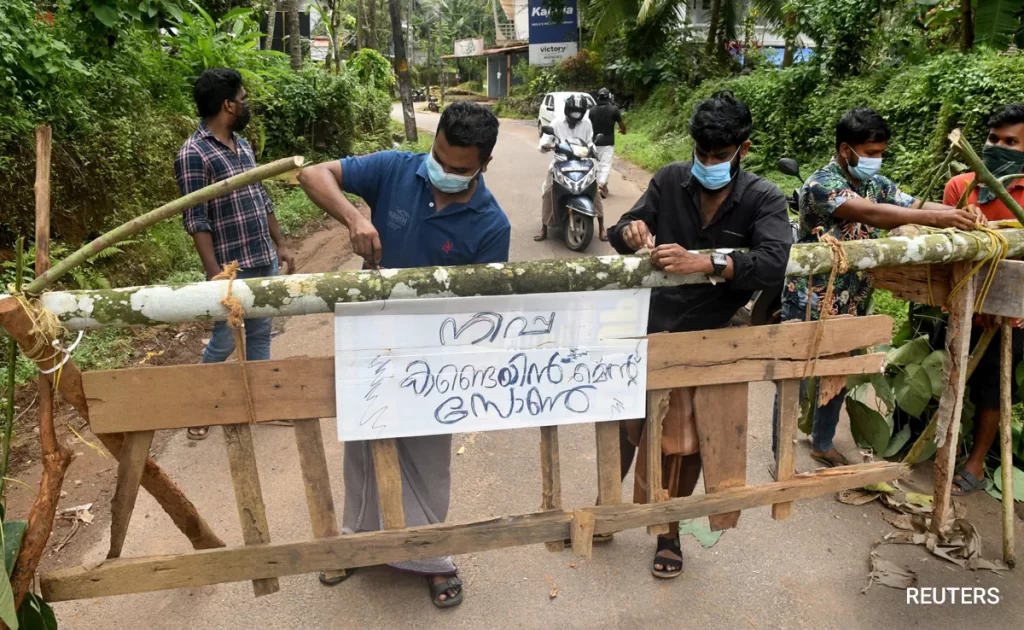Kerala is where the Nipah Virus is extending its tendrils. Six cases of the infection have been reported so far in the state, two of which have already died as a result of the consequences. A zoonotic virus called Nipah Virus infects animals and fruits, which then transmit to people.
The bat is one of the most well-known hosts of this virus. Through the fruits they frequently consume, they can spread the infection. Let’s examine how fruits catch the virus and which fruits are those that carry it at a time when Nipah cases are increasing in Kerala.
which fruits in Kerala have Nipah virus?
The Nipah Virus Is Proliferating Quickly: Stay safe by avoiding these 3 fruits.
The following fruits are more likely to have the Nipah virus:
Fruit that has been contaminated by the bite of a bat or another animal.
fruits that have dropped to the ground and been contaminated by bat spit or droppings.
fruits that have been stored in bat-inhabited areas.
It is advised to avoid eating any fruits you are unsure of during an outbreak of the Nipah virus. If you choose to eat fruits, they should always be well-cleansed with soap and water before doing so.
- Guavas
- Dates
- Lychees
It is advised to err on the side of caution and avoid any fruit that you are unsure of during an outbreak of the Nipah virus.
How did the Nipah virus start?
When the Nipah virus was initially discovered, it was believed to have jumped from pigs and spread quickly among pig farmers in Malaysia in 1999. Since then, there haven’t been any more instances found in Malaysia, but the virus was found in Bangladesh in 2001, and there have since been yearly outbreaks there.
What happens if you get the Nipah virus?
Initial symptoms for persons with the infection include fever, headaches, muscle soreness, vomiting, and sore throat. According to the WHO, advanced stages can cause serious respiratory issues, encephalitis, convulsions, and even coma within 24 to 48 hours.
Is the Nipah virus in India?
India is on high alert following a recent Nipah epidemic. The origin of the Goats and Soda Nipah virus outbreak in Kerala, which is known to pass from bats to humans, remains unknown. Here is what we currently know about the patients and the ongoing battle against this potentially lethal illness.
why is the Nipah virus only in Kerala?

According to research conducted by the National Institute of Virology, the Nipah virus is spreading among bat populations in nine states and one union territory. Kerala, Tamil Nadu, Karnataka, Goa, Maharashtra, Bihar, West Bengal, Assam, Meghalaya, and Pondicherry all had antibodies to the Nipah virus.
But why has the Nipah Virus only recently surfaced in Kerala?
It could be explained in a variety of ways, say specialists. The Kerala bat population may have developed an endemic form of the Nipah virus. The practice of drinking fresh toddy or sweet tree sap, which may become polluted by diseased bats, is another cultural factor cited as a contributing factor to Nipah outbreaks. The likelihood that Nipah may have gone unnoticed in other states has not been completely disproved by experts.
How to protect from Nipah Virus?
In Bangladesh, Malaysia, India, and Singapore, places where Nipah virus (NiV) outbreaks have occurred, people should:
- Regularly wash your hands with soap and water.
- Stay away from sick pigs or bats.
- Prevent going to places where bats are known to roost.
- Avoid consuming or consuming products that could be contaminated by bats, such as raw date palm sap, raw fruit, or fruit that has fallen to the ground. Also, avoid coming into contact with someone who has been known to have the NiV virus by contact with their blood or body fluids.
Standard infection control procedures and effective barrier nursing techniques are crucial in preventing hospital-acquired infections (nosocomial transmission) in settings where a patient has a confirmed or suspected NiV infection since NiV can be passed from person to person.
